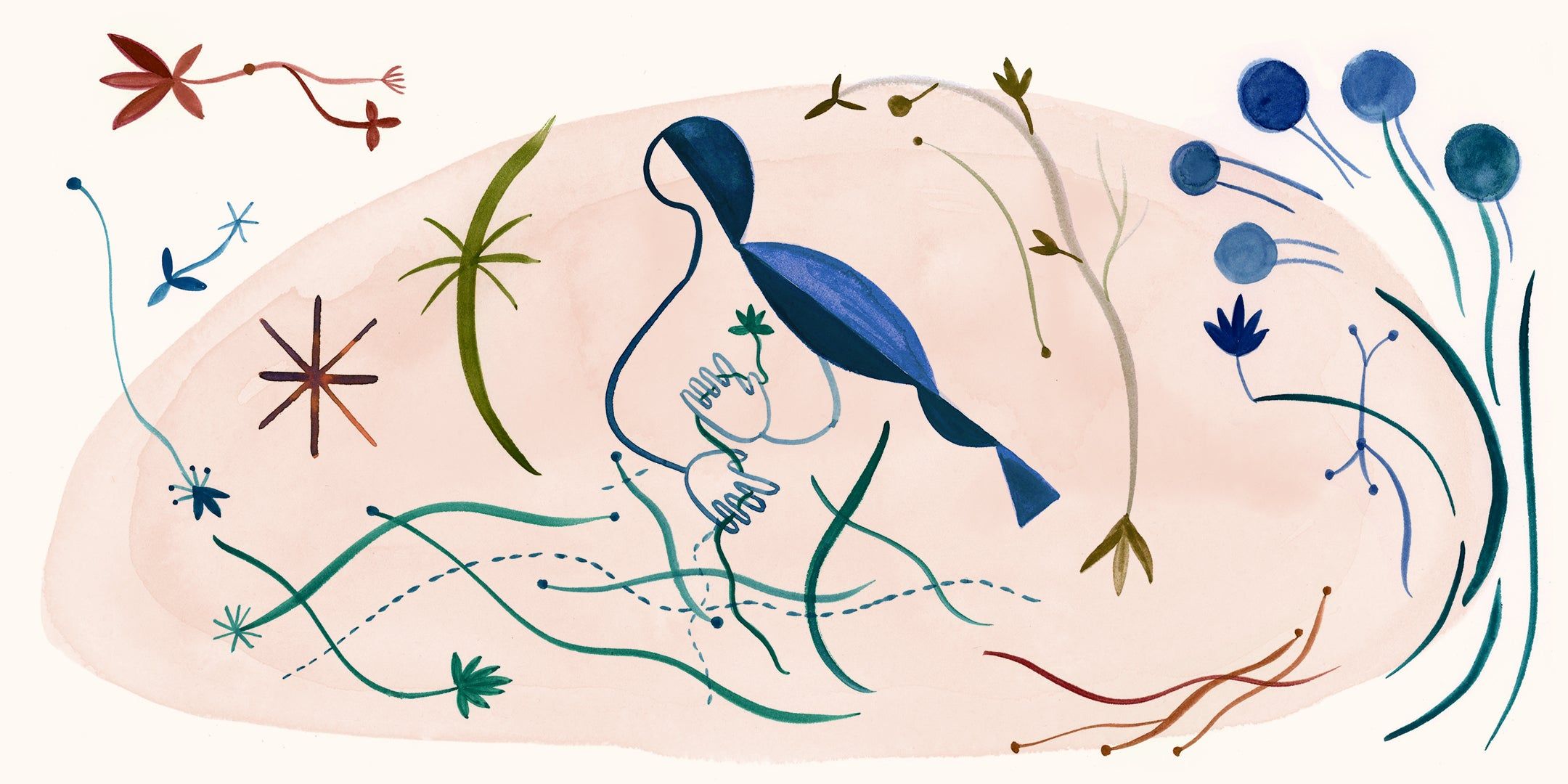
Pregnancy Loss Awareness
5 Things To Know About Pregnancy and Infant Loss
Although about 1 in 4 pregnancies ends in miscarriage, the silence surrounding it often leaves families unaware of what to expect and where to find support. We asked our Instagram community what they wished they'd known before experiencing a loss.
- Written By
- Katie Covington
- Illustration
- Sandra Javera
"We tell ourselves stories in order to live."
― Joan Didion
Inspired by Marni Low's piece Let'sTalk About Pregnancy Loss, we reached out to the Maisonette family to share what they'd known before losing a pregnancy. Your stories show the breadth of experiences families have and how the support people need varies from person to person and even between losses. Thank you for sharing so vulnerably–let's continue sharing our stories when it serves us and thoughtfully holding space for those brave enough to share.
About 25% of known pregnancies end in miscarriage, a loss before the 20th week of pregnancy. In reality, this number is likely much higher since many people have early miscarriages without ever realizing they're pregnant or even missing a period. If the loss occurs after the 20th week, it is a stillbirth; this affects about one in 160 pregnancies . When we polled the Maisonette Instagram family, 44% of respondents shared that they had experienced a miscarriage or stillbirth.
The rate of miscarriage and stillbirth isn't the same across all birthing people –the rate of stillbirth for non-Hispanic Black women is10.32%, staggeringly more than twice the rate for non-Hispanic white women.
It Can Be Lonely and Isolating
I wish I'd known…
• How isolating it felt because no one speaks of it much.
• The empty feeling afterward. It's like you're hollow.
In the United States, you often hear recommendations to wait until you've passed the 12-week threshold to share news of a pregnancy. However, it's essential to have a support system in place during a loss, so if your community didn't know you were pregnant, it can be daunting to let them know you're grieving, leading to feelings of isolation. Know that it's okay to lean on your network while establishing any boundaries you need for your mental health.
The Grieving Process is Unique
I wish I'd known…
• That it doesn't matter how far along you were. It really hurts no matter what.
• How difficult it is to grieve someone so connected to you emotionally and physically without the comfort of memories. It's such a struggle to grieve a possibility.
• I checked out for six months, but it felt like two days. I couldn't bring myself to be around pregnant women or babies. Nightmares were every night, waking up holding what should have been my baby bump; it was painful waking up to reality.(@Maggiecassera)
Grief can take many forms. It can come and go in waves over the years and is often mixed with other feelings like shock, anger, anxiety, or relief. Janet Jaffe of the Center for Reproductive Psychology in San Diego writes that the loss of a pregnancy is a unique type of grief because, "With a pregnancy loss, you only have what's in your imagination. The story you have in your head about that future child just vanishes."
Prioritize Healing
I wish I had known…
• It's not your fault.
• Don't let anyone tell you how you should feel.
• That you can ask for work time off for bereavement just as you would in other situations.
• I was physically and mentally okay with what happened, but I suffered from a postpartum-like hormonal depression. It took at least a month to feel like myself again. (@amarillo.rust)
• That talking about pregnancy loss is looked down upon & you often feel ashamed to talk about it. It's more of a 'suffer in silence' vibe you get from people. Finding a grief counselor or support group is key. (@Stace_scott)
• How to help someone going through it when you haven't experienced it yourself.
• People will say the wrong thing, but they are trying to come from a good place.
Loss can carry a different meaning for families each time it happens. Many families choose to share only with close friends and family members that they believe can support them–67% of the people in our poll shared the news with a friend, but only 37% shared with their employer.
Being vocal about the support you need is vital- this can include a support group or a professional counselor, help with childcare, or skipping a baby shower. Your obstetrician can recommend resources tailored to you. Marni Low shares advice on setting boundaries and choosing when and how to communicate your story.
On The Physicality of Loss
I wish I'd known…
• All the things you go through physically. It would have saved a lot of shock. (Charlotte Groeneveld @Thefashionguitar)
• Miscarriage takes time for your body to process.
• How much it physically hurts.
• That I would still have postpartum hormones. I was NOT ready for those mood swings along with the grief. (Meghan S.)
People experiencing pregnancy loss can be surprised at how intense the pain can be and how long it can take to complete the process. Depending on the type of loss, it can take days, weeks, or even months to recover physically. Whether treatment includesmedical management, expectant management, or surgical evacuation, symptoms can be bleeding, cramping, and rapidly fluctuating hormone levels. Knowing what to expect can make an upsetting experience less overwhelming.